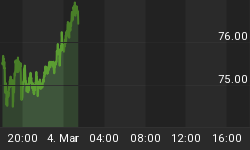Normally, the consumer sentiment number that comes out each month seems like a piece of media fluff, far less substantial than, say, housing starts or the gold price. But today's report is unusual enough to deserve a longer look. From MarketWatch:
Nothing happened, but the news was bad anyway
Commentary: Historic decline in sentiment comes almost without warning
WASHINGTON (MarketWatch) -- It's no secret that Americans are depressed. The economy is barely growing, job growth is anemic, raises are rare, house prices are falling, the stock market is down, and oil is spreading across the Gulf.
So, in one sense, it's no surprise that the University of Michigan's consumer sentiment index fell in July. See full story on the drop in consumer sentiment.
Markets Hub: Earnings euphoria fades
After an optimistic start to the week, stocks are deep in the red Friday as big name companies like Google, GE and Bank of America feed concerns about the pace of earnings growth. An undertone of discouraging U.S. economic data as well as the potential fallout from financial regulation is also weighing on stocks. Paul Vigna, George Stahl and Drew Dowell discuss.
But the magnitude of the drop -- 9.5 points -- was astonishing, and suggests that Americans may have hit some kind of breaking point.
The sentiment index doesn't drop this much unless something really big shocks the economy and the national psyche. The shocking thing about this month's decline is that nothing really shocking happened between June and July.
In the 32-year history of this survey, it's fallen by 9.5 points or more on only six other occasions:
- October 2008: The month after Lehman Bros. collapsed;
- October 2005: The month after Hurricane Katrina hit;
- September 2001: The month terrorists attacked America;
- August 1990: The month Kuwait was invaded;
- March 1980: The month the stock market plunged and confirmed that the nation had entered a recession.Only once did the sentiment index fall so far without being accompanied by an event so big that it's in the history books: December 1980.
In that month, much like today, Americans were anxious about the future of the economy, which had just emerged from a recession. They had elected a president who promised big changes, but the people weren't quite sure what that meant, or whether the new policies would work. The market sold off. The economy dipped back into an extremely brutal recession soon thereafter.
History doesn't repeat, of course. The drop in the sentiment index doesn't mean a double-dip recession is in the cards, but it does mean consumers are fearful that everything is unraveling. They have no faith in government, or in business, or in the media, for that matter.
We could really use some good news right about now.
Some thoughts:
-
The headline of the MarketWatch article is misleading. A lot is happening out there, most of it bad. Foreclosures are rising again, home sales are down (despite record low mortgage rates), empty commercial buildings are everywhere as video chains and other retailers close. And -- the big one for readers of local papers -- dozens of state and local governments are broke and threatening to lay off teachers, cops, and garbage collectors. The U.S. is rapidly becoming a Third World country, and people feel it even if they don't always understand exactly how it's happening.
-
The designation of Americans as "consumers" still makes me uncomfortable. Why not compile sentiment stats for entrepreneurs or scientists or teachers or some other socially beneficial group, instead of putting shoppers at the center of the cultural/economic universe? Not that you'd get a positive reading from these other groups, but at least we'd be focusing on people who produce something of value.
So the real question isn't why consumer sentiment is down, but why it was up in the first place.















